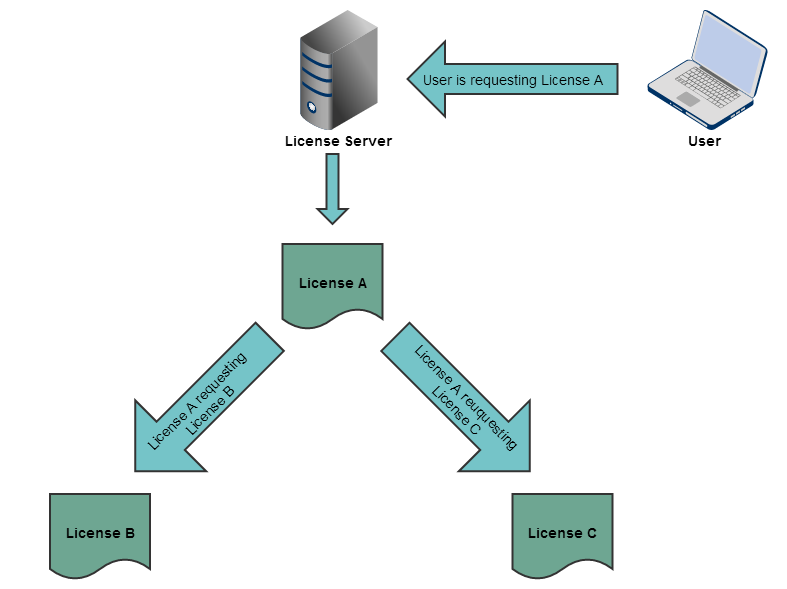...
Token-based/product suite licenses are used for letting you bundle products in diverse ways.
Some example XML license templates corresponding to these basic licensing policies are given in the following section, and you can find a number of sample licenses in the /examples/licenses directory of the LM-X distribution. For complete details about each of these license models and the settings you can use within features, see the LM-X Developers Guide.
You can easily read existing templates and generate licenses from them using the LM-X License Generator, xmllicgen (located in the platform-specific directory). The XML license template is an input for the LM-X License Generator. Only ASCII file format is supported. The xmllicgen tool does not work with UTF-8 or any other Unicode-based encoding.
You can use xmllicgen to create licenses manually or automatically. You can integrate automated license generation into business applications; for example, the license generator can be called by a web service to create licenses based on web storefront requests. The XML format of license file templates facilitates integration with your internal systems for automatic license production (issuing) of every possible licensing model (trial, fixed date, activation date, etc.).
To generate a license, use the following command, with the relative paths for your system:
- On Windows, type: xmllicgen.exe -output example.lic ..\examples\licenses\nodelocked.xml
- On Unix, type: ./xmllicgen -output example.lic ../examples/licenses/nodelocked.xml
Note: If you are using the evaluation version of LM-X, vendor is "demo."
.
